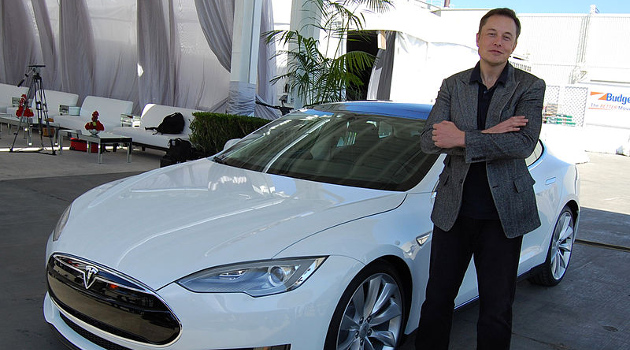We’ve written considerably about Elon Musk’s ability to benefit from cronyism. A recent op-ed by CF&P President Andrew Quinlan drew attention to how both of the companies in the recently announced merger between Tesla Motors and SolarCity—both belonging to Musk—frequently receive taxpayer funded benefits:
The merger was first proposed in June, and now that it has been accepted, is subject to SEC review and majority approval from the independent shareholders of both companies. With the amount of taxpayer support both companies have received, perhaps the rest of us should get a vote, too.
… SolarCity has floundered despite significant taxpayer support through a bevy of state and federal tax credits and subsidies. …Tesla, too, has fed repeatedly at the government trough. The government provided federal loan guarantees and tax credits to help manufacture its electric vehicles. It also subsidized the purchase of those same vehicles to increase sales.
…voters are fed up with the status quo. They see a system where billionaires and those with political connections are given every advantage, while average Americans face excessive government burdens and unnecessary obstacles. So while Elon Musk buys one of his companies from himself, we should remember that he does so thanks to the generous support of a captive public.
A second op-ed from Quinlan looked at how back room dealing is paving the way for a fat government contract for Musk’s third company, SpaceX:
Currently a joint venture between Lockheed Martin and Boeing called the United Launch Alliance (ULA) produces the rockets used for launching defense satellites into orbit. ULA buys the engines for their rockets from Russia, which McCain and Musk – who previously sued over the issue – argue is reason to restrict ULA from fulfilling the remainder of their contract.
… the Director of National Intelligence and top military officials have testified that continuing to use rockets from ULA, even with their Russian engines, best serves our national security interests until domestically sourced alternatives are ready for use.
Ultimately, McCain was forced to compromise on his demands to immediately end procurement of ULA rockets and instead set a cut-off date of 2022. Maybe SpaceX will be ready to step in at that time with reliable rockets powered by domestically built engines, or maybe it won’t. But there’s no legitimate reason for Congress to limit its options at this time except as part of a crony deal paving the way for Musk alone to bid on supplying the rockets. The better approach would be to keep as many eligible to compete as possible and let the best bidder win.
He noted how SpaceX also got backing from the crony-infested Export-Import bank:
SpaceX even got taxpayer backed loans from the cronyism-enabling Export-Import bank. Ex-Im’s Chairman justified the support with the perplexing claim that SpaceX is a “small business” despite employing 4,000 people. Last year’s purchase of a 10 percent stake in SpaceX by Google and Fidelity also shows it has no problem raising capital on its own without taxpayer support.
And over at CEI, William Yeatman notes how Musk’s views on lobbying seem self-serving:
…An example of rent seeking is California’s subsidy program for zero emissions vehicles (ZEVs)—primarily electric vehicles… In recent years, luxury electric carmaker Tesla has been a major beneficiary of the ZEV program. Since 2013, the company has taken in more than $400 million by selling ZEV credits. …this money is unrelated to meeting consumer demand; it is, rather, a direct transfer from certain automakers to others—primarily Tesla.
Tesla’s CEO, of course, is famous entrepreneur Elon Musk. Last week, the carmaker had an earnings call, during which Musk “hammered” the ZEV program that’s been so good to him. Here’s what Musk said, as reported by Bloomberg Markets:
The California Air Resources Board is being incredibly weak in its application of ZEV credits. The standards are pathetically low. They need to be increased. There’s massive lobbying by the big car companies to prevent CARB from increasing the ZEV credit mandate, which they absolutely damn well should. It’s a crying shame that they haven’t. And as a result, you can barely sell the ZEV credits for pennies on the dollar … CARB should damn well be ashamed of themselves.
…In the course of campaigning to increase a wealth transfer to Tesla from other companies, Musk complains about other car companies lobbying to decrease the wealth transfer. It seems that Musk thinks there are two kinds of lobbying: 1) the kind that makes him richer, which is good lobbying; and 2) the kind that threatens his handouts, which is bad lobbying. Musk’s haughty rent-seeking regarding California’s ZEV program is all the more dubious in light of the fact that his car company benefits from so many other government policies, including a regressive $7,500 federal tax credit. Given his unseemly reliance on political favoritism, Musk should be damned well ashamed of himself.
Although we’ve talked frequently about him, we have nothing against Musk per se, at least as he compares to almost any other businessman. And we certainly recognize his contributions and innovations even as he benefits from government largess. The responsibility ultimately falls on policymakers who make such handouts available. It is nevertheless fruitful to highlight the degree to which businessmen argue from convenience, rather than principle, and how their hypocrisies are enabled by politicians all too eager to hand out taxpayers dollars for political support.
———
Image credit: Maurizio Pesce | CC BY 2.0.

